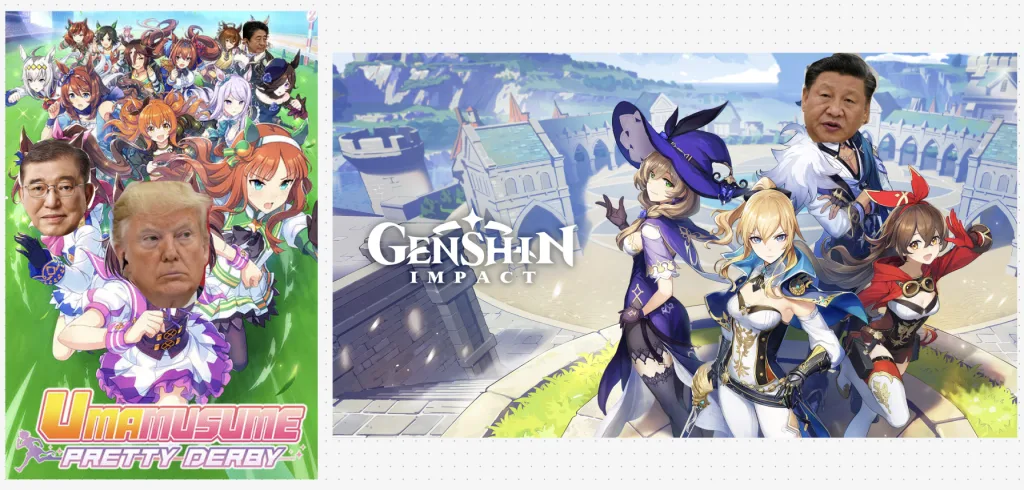Games Fail at Soft Power & the Moral Duty to Support Japanese Anime

While both China and the United States use each other’s cultural imports with great suspicion, the one pop media category where this doesn’t seem to arouse the same suspicion is games. Yet, for all the concern that companies like TikTok bring in the United States, no one seems to be sweating the infiltration of 5-star Genshin characters in the States. The only ticket items to have even raised an eyebrow, far worse than TikTok’s data scandal, are kernel-level anti-cheat common in nearly every Chinese game and even in American-based subsidiaries like Riot. The reason for gaming’s limp soft power is that it fails to effectively communicate social norms in the same way that film and TV do.
While China’s censorship level is on another scale, the fall of the Great Firewall from a Politburo that called games the “spiritual opium of the people” is remarkable. For over a couple of years, American firms have had a free backdoor into the Chinese game market – permissionless entry! While this is a boon for games economically, it’s also another reminder that we don’t have a seat at the big kids’ table. This doesn’t seem to be unjustified either.
@Chris Heatherly’s brilliant podcast with @Erich Schwartzel discusses these points with a fascinating conversation about how the oil states are also in competition with one another (hello @Savvy Games Group). The conversation also reinforces the growing role of anime in the West. I have frequently commented on the proliferation of ramen shops in Stockholm over the last decade, and this is a universal finding when I visit other major and non-major cities. Anime is a Trojan horse for a lot of soft power, and that actually may be where China finds a foothold, and where games are relevant. Anime has quietly built the kind of bridges that games like Black Myth: Wukong, a distinct Chinese export, failed to achieve in the West.
Another example is Dragon Ball’s inspiration from the Chinese classic, Journey to the West. Dragon Ball is the number one mobile RPG in the United States by lifetime revenue, and yet Journey to the West sounds like an Oasis album to most Americans.
Ironically, the best way to counter this cultural soft power threat is to embrace the strongest potential counterbalance to it: Japanese anime. It wasn’t a mistake when miHoYo adopted the English translation of their slogan, using the Japanese word “otaku” rather than its Chinese equivalent, and it should remain this way. Hollywood was America’s greatest soft power weapon of the 20th century. If the 21st belongs to anime, then games will become more politically relevant than ever.